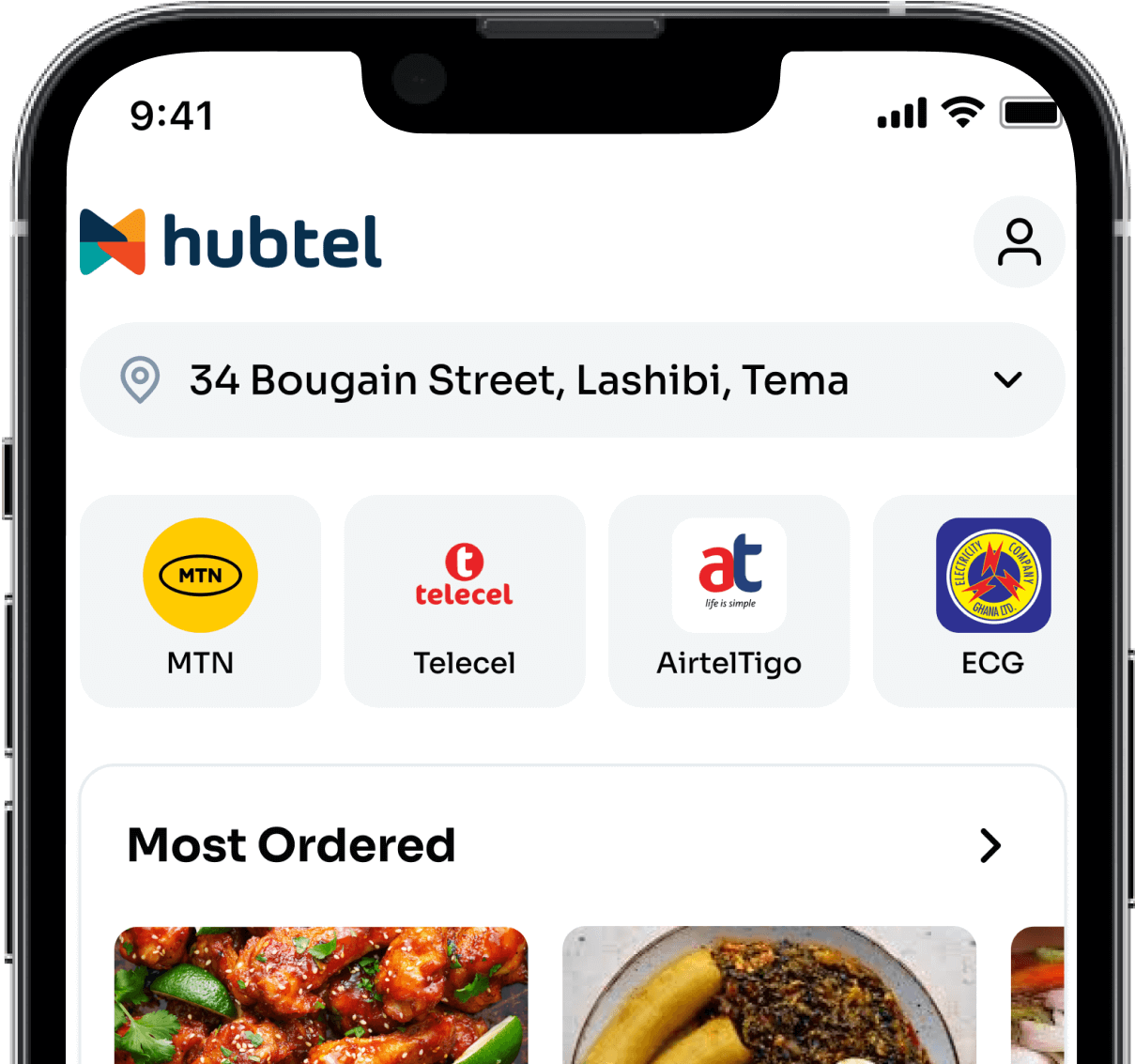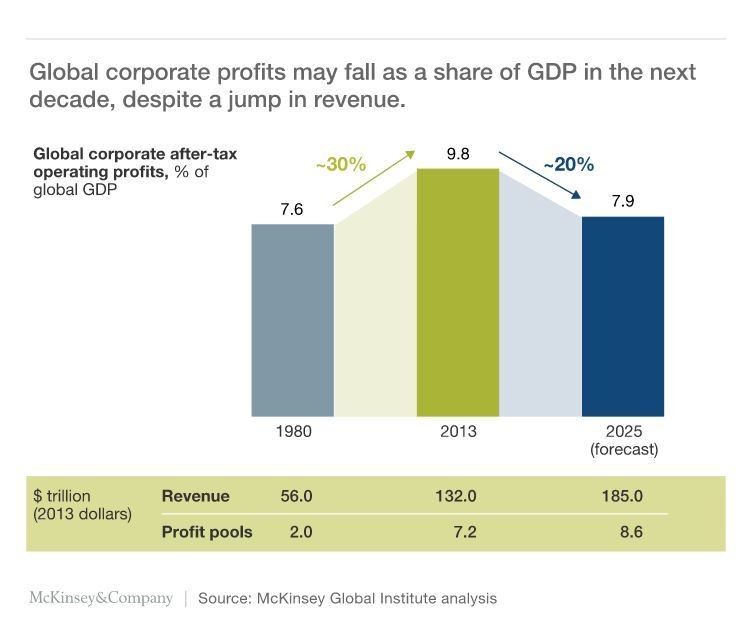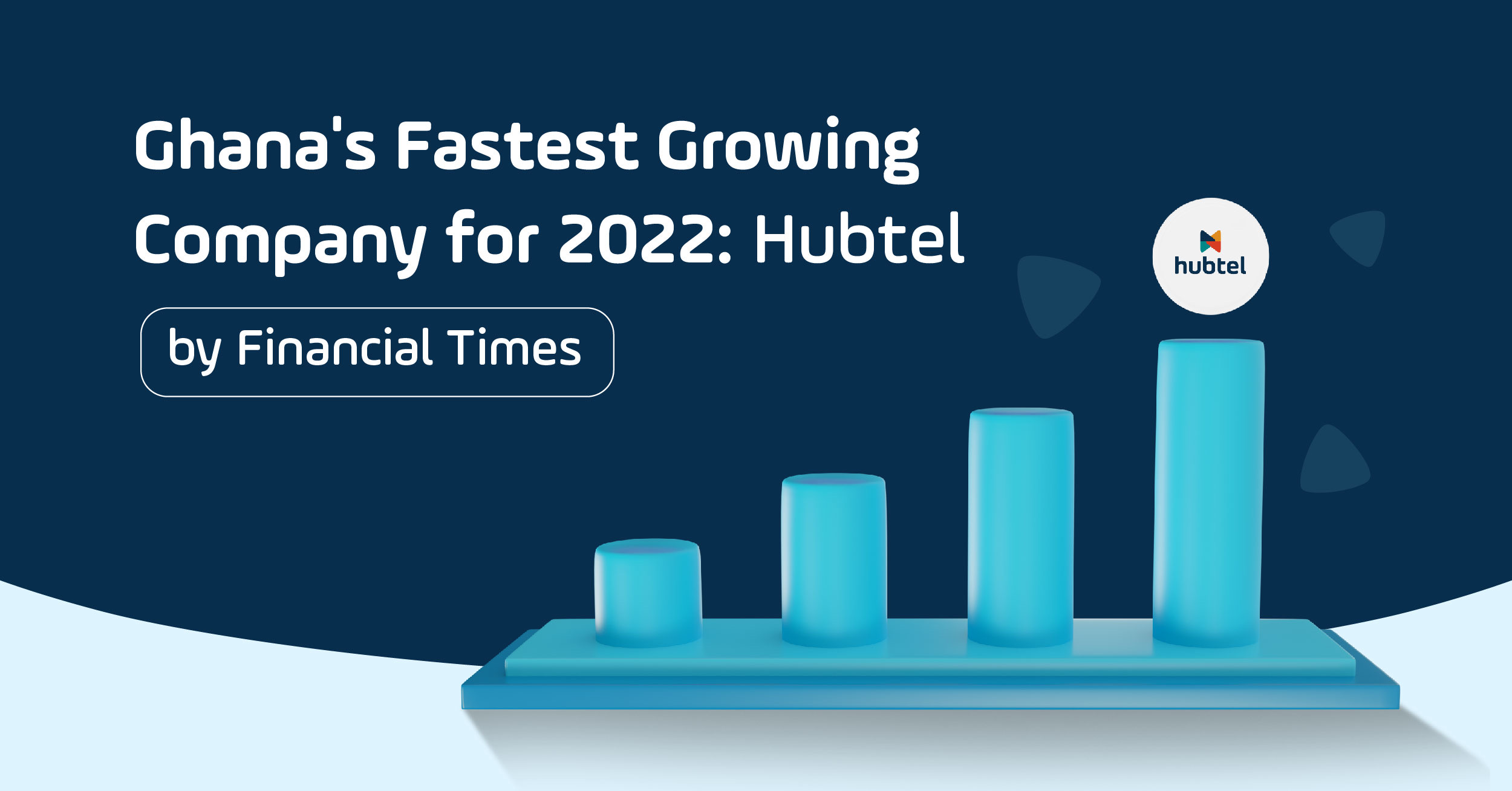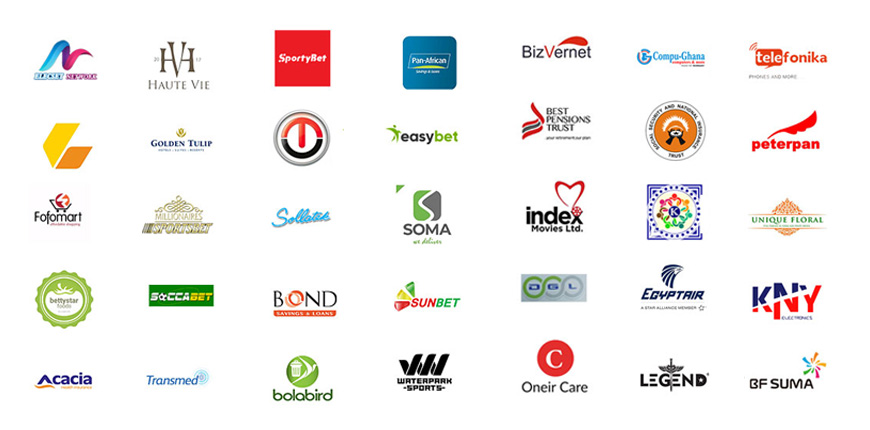Tag: business

Each year’s holiday shopping season is always a wake-up call for many merchants. To prepare for the rush, new tools are purchased, new staff members are hired and new processes are put into place. It has always been an awesome time for growth and an even better time to establish your brand.
But 2020 has been different. This year has been unlike any other, and perhaps one of the most oxymoronic periods with buying habits shifting and online sales rising. eCommerce has become more important now than ever before. As the holiday season fast approaches, many are wondering what it will look like….

So, how can you properly prepare for the holiday shopping season with eCommerce right at the center? Our eCommerce Holiday Checklist is a great place to start.
To capitalize on the holiday rush this year, while preparing your business for a more optimized customer experience next year, Hubtel has provided the dynamic tools you need to meet your customers wherever they are with whatever they need, however they want.
Breach Online and Offline
This year is all about organized and safe shopping. Engage your customers from multiple fronts as more customers are turning to online shopping to avoid all the challenges with shopping in-store. Customers are more and more involved with their mobile devices. Take your business to your customers. Delight and entertain them with seamless shopping experiences and be sure to reach them right on their smartphones with Hubtel.
Payment Convenience is a MUST…

Offer your customers payment flexibility and convenience. Remember, customers are usually pressed for time during the holiday season and need to complete their purchases ASAP. Secure your customers with multiple payment options from any mobile money network or bank card on Hubtel.
Speed can break or make sales
Fast same-day delivery is key to winning the holiday spend. Last-minute shoppers, impatient buyers, and busy people all want their products delivered quickly. By offering fast same-day delivery for your customers, you appeal to a wider range of shoppers rather than just the organized early birds! It prevents shoppers from missing out by ensuring items arrive on time to start their wrapping…

Be appealing
Personalize your customers’ experiences with recommendations and purchase guides on Hubtel. Customers are loyal to brands that make shopping easy, especially during the holidays. Gain insights into customers’ preferences, inspire and encourage them to make a purchase with holiday offers and season’s favorites.
Include your customers in your holiday celebrations this year.
Be uplifting and help customers get through a rather tough year by providing added convenience and peace of mind.
2020 has proven to all of us that the future is now, and there is no waiting!

Related
Hubtel Ranked Ghana's Fastest Growing Company for 2022
May 16, 2024| 2 minutes read
May 12, 2024| 3 minutes read
Honoring the Legacy of Our Co-founder Leslie Kwabena Nyarko Gyimah
May 8, 2024| 2 minutes read

No more street hails or waiting outside to find a ride. Uber has launched in Accra, the 11th city in Sub-Saharan Africa and the 467th globally, in a move that marks its growing presence in Africa.
The service is set to provide unrivaled intra-city movement for the over 4 million people using the streets in the Greater Accra Metropolitan Area (GAMA). Uber’s service has already gained massive brand recognition around the world because of its ease of use and the convenience it provides in an increasingly mobile world.
Uber selected to use SMSGH USSD-based mPOS service to enable a mobile money payment that was seamless and easy to use for riders and driver-partners. According to a recent Bank of Ghana report, mobile money transactions in Ghana have now reached GHs35 billion per quarter.
With the launch of the SMSGH mPOS, Uber riders can now conveniently pay for rides via mobile money. Drivers will simply dial a USSD code containing the driver’s four-digit business identification number (BIN) and the rider’s mobile number (e.g.*713*1234*0244000000#), select the mobile wallet provider and enter the amount to pay. A bill prompt is then issued to the rider to confirm the transaction and complete payment with a wallet PIN. Both driver-partner and rider will then receive an SMS text as confirmation of payment.
In an interview on the solution, a Senior Product Manager at SMSGH, Bubune Peter Adih commented that “….the simplicity of the mPOS application resonates with Uber’s approach to doing business. Being everyone’s private driver Uber strives to breakdown complex interactions into very simple processes and so SMSGH sought to ensure that this payment service works just as well and simple as Uber.“
Free Weekend
Uber is celebrating its launch in Accra by providing free rides. This means that from launch date (Thursday, June 9) until Sunday (June 12, at midnight), guests will be able to request an Uber ride at no charge. In order to activate this discount, a user will need to enter the promo code MoveGHANA on their Uber iOS/Android/Windows application. This will offer users 6 free rides within Accra, each up to GHS 20.
About Uber
UBER is a technology company that connects riders and drivers at the touch of a button.
Available in 467 cities across 72 countries, the UBER platform is evolving the way the world moves. UBER’s mission is to change the way citizens of the world move, work and live. It aspires to transform the way people connect with their communities and to bring reliability, convenience and opportunity to transport systems.

Related
Hubtel Ranked Ghana's Fastest Growing Company for 2022
May 16, 2024| 2 minutes read
May 12, 2024| 3 minutes read
Honoring the Legacy of Our Co-founder Leslie Kwabena Nyarko Gyimah
May 8, 2024| 2 minutes read

90 percent of text messages get read within 3 minutes of delivery according to one study from 2011.
Most of your customers have a mobile phone and studies show that about 98% keep their phones within an arm’s reach. This implies that, they are very likely to reach for it at the sound of a beep or at the blink of an LED light. Bulk SMS then offers constant access to your customers.
Why SMS Campaigns?
- SMS messaging is very popular. Chances are that you have your phone next to you as you read this and will pick it up as soon as it beeps….and so will the 4 billion users worldwide.
- SMS Messaging is intimate. The people you engage in via your SMS campaigns will more often than not opt to receive messages from you, because they trust you. Whatever information you send via SMS is guaranteed to reach an audience genuinely interested in your message. Don’t forget to personalize your messages by including your customer’s name and using a unique Sender ID.
- SMS is flexible and responsive: When you’re launching a new product/service or business is slow, the fastest way to reach your customers is via SMS. You cut out the stress of using other mediums which may require more resources, making SMS Campaigns a more convenient choice in terms of pricing.
- Instant feedback: SMS is a convenient way to ask your customer for feedback on services provided. Their responses will inform how you do business in the future. Offering freebies or discounts? People love bargains and are bound to respond to SMS campaigns almost immediately.
- Less is more. In 160 characters, you can send your message across concisely and get your audience’s attention.
Convinced? Sign up at www.mytxtbox.com
Analyzing past campaigns is crucial to improving results in the future. SMSGH has added a new feature – Daily digests – on its messaging platform, MYtxtBOX. By introducing this, customers will receive daily and weekly reports on their account usage and balance notifications.
Importance of reports and balance notifications for Bulk SMS Campaigns
Every SMS you send out is important to you and your target market. Daily digests help account managers monitor and measure effectiveness of SMS Campaigns in the following ways:
- Track results: Our delivery reports provide detailed information on the status of each message you send.
- Have control of your account. Imagine that you have to send an urgent SMS broadcast to you customers, and log into your account and realize your account balance is too low. Receiving prompts when your account is low on messaging credits will avoid any such disappointments. Just as your bank account notifications are important to you, so should your bulk SMS account. Get notifications when your account reaches a threshold (set by you). Don’t wait till it is urgent to top up.
- Plan your SMS Campaigns. Daily reports on your SMS campaigns will inform your decisions when planning your next SMS Campaign. For premium messaging, you are in a better position to determine which of your subscribers to target or put more marketing efforts into.
With these you can customize your approach to customer engagement and marketing for SMS subscriptions to drive productivity.
Don’t have an account? Visit www.mytxtbox.com and sign up
Source: Morgan Stanley

Related
Hubtel Ranked Ghana's Fastest Growing Company for 2022
May 16, 2024| 2 minutes read
May 12, 2024| 3 minutes read
Honoring the Legacy of Our Co-founder Leslie Kwabena Nyarko Gyimah
May 8, 2024| 2 minutes read

Top local mobile value added service (VAS) providers who constitute the Wireless Applications Services Providers Association of Ghana (WASPAG) have suspended all their services on Airtel citing unfair revenue share.
Director of Regulatory and Corporate Affairs for WASPAG, Conrad Nyuur told Adom News that, the mobile network provider, like all other telcos, have over the years been imposing unfair revenue share arrangements on VAS players but this time round “they went too far”.
He explained that Airtel is one of the telcos that keeps 70% of revenue generated by services of VAS providers and gives 30% to the VAS providers, who in turn share their portion with content owners and App developers.
“That revenue share arrangement is bad enough, but just this year they wrote to us and said they will now keep 80% and give us 20% but we resisted and they reviewed it to 75% to 25%, but we still insist it is unfair,” he said.
Nyuur said they therefore gave Airtel one month notice to reverse the decision and that one month ended on March 16, 2016, but they have still not heard anything from Airtel so they have suspended all their services on Airtel until they reserve the decision.
By this action, all premium-rated and subscribed services such as all SMS-based services, caller ring back tone (CRBT), MMS or WAP content services and even some voice services have all been cancelled on the mobile network operator.
This means customers who subscribe to those services, some of which are essential, would no longer enjoy the services until Airtel reaches a compromise with their local VAS partners.
Nyuur noted that this is not the first time VAS players have had to boycott Airtel, saying that in the first instance, Airtel and Tigo failed to pay that exact amount due VAS players as reflected in mutually reconciled financial statement.
“They insisted on paying what they unilaterally collated and we lost money because we had then paid our content providers based on what the reconciled statement said,” he lamented.
He said initially the local VAS players had a 50-50 revenue share arrangement with Airtel but they kept scrapping off part of the share of VAS players every year and claiming it is based on orders from their headquarters in India.
Nyuur said “to add insult to injury”, the network even imposed their Indian-based sister company called ComViva on the local VAS players to play middle man for CRBT services.
“ComViva is nothing but a content provider like us but Airtel forced us to give our content to them in India and then they place it on the Airtel network in Ghana and that has reduced our share of the revenue from CRBT to 11% and not 30% as agreed,” he said.
He said WASPAG is particularly surprised at Airtel because, in India where it is headquartered, it gives VAS players up to 70% of the VAS revenue, but it has decided to shortchange VAS players in Ghana.
“The protest to Airtel’s imposition of unfair revenue share arrangement was necessary because we have endured that unfair cycle for years, where one telco scoops some of our revenue off and once they succeed the other telcos follow and we keep losing,” he noted.
Nyuur said WASPAG is very worried that so far, the telecoms industry regulator, National Communications Authority (NCA) is not providing any real protection for VAS players after licensing special number resources to them at a fee.
He said the last time VAS players took an issue regarding Airtel to NCA, the regulator said it could not interfere in commercial arrangements between two private entities, “but when we suspended our services the NCA said we should restore the services to customers while we negotiate with Airtel.
“We feel that was double standards on the part of the NCA because our commercial arrangement with telcos is always about the customer so why would NCA stay off the arrangement which has ramifications for the customer,” he asked.
Meanwhile, since the WASPAG members suspended their services, Airtel is said to have started feeling the pinch so its officials have called WASPAG for a meeting later today to discuss the way forward, after ignoring the VAS providers all this while.
AIRTEL
Airtel officials reached on the matter confirmed they are aware of the issue but declined comment until after negotiating with the VAS players.
But until then, all VAS services provided by WASPAG members to Airtel customers remain suspended.
WASPAG
WASPAG represents over 20 top VAS providers in the country, and they include MobileContent, SMSGH, TXTGhana, Rancard and many others.

Related
Hubtel Ranked Ghana's Fastest Growing Company for 2022
May 16, 2024| 2 minutes read
May 12, 2024| 3 minutes read
Honoring the Legacy of Our Co-founder Leslie Kwabena Nyarko Gyimah
May 8, 2024| 2 minutes read

We are in the golden age of technology. Within the larger movement; however, each one of us is directly influenced by the take off of a more recent and rapidly developing financial technology (FinTech) space—an industry projected to attract approximately $20 billion in funding by 2017, estimates Statista.
Financial technology is a democratizing force that can change our lives by making financial tools and services accessible, faster and more easily understood — most times at a lower cost. Complex algorithms now often take the place of traditional advisors, perhaps offering more efficient and personalized products for end users.
From budgeting tools to alternative lending and investment options, payments processing, and philanthropic platforms, we have a lot to gain from the advent of financial technology startups. Learn below about just a few ways in which you can leverage these hot new platforms before they inevitably become common applications for the entire public.
Payments Made Easy
The advent of payments technology has made consumer spending, and all other forms of payment easier, faster, and more secure. Payments technology startups, such as Square, help small businesses get off the ground by adopting easy to use and cheaper credit card payments processing. Instant, reliable transactions are important for day-to-day sales, along with employee payroll processing.
Venmo, a payments app, has provided a “free digital wallet” to the mobile devices of thousands, by allowing friends to connect quickly and securely via Facebook to request and send money to each other in a few taps on their phones. Furthermore, on the consumer side, platforms such as Apple Pay and Bitcoin continue to disrupt the traditional method of pay. When sending money abroad, individuals should consider using money transfer services such as TransferWise to save on international transfer fees.
Lend a Helping Hand
Peer-To-Peer (P2P) business models have fueled a new sharing economy revolution, with many products and services such as home rentals, cleaning services, and anything else under the sun being “uberized.” New FinTech startups have uberized the online lending space, allowing you to access funds through unconventional ways, without the help of big-name banks or a network of established lenders.
Platforms such as U.S.-based LendingClub and Prosper, and U.K-based Zopa have individually issued millions of dollars in loans, joining the rising number of tech unicorns in today’s entrepreneurial space.
Crowdfunding: The New Venture Capital
Investment in crowdfunding platforms may surpass venture capital funding in 2016. Popular sites Indiegogo and Kickstarter have helped thousands of ideas get off the ground – from bizarre video games to social projects and multi-purpose jackets, small businesses and entrepreneurs can now look to the general public for support. Countless other sites such as GoFundMe, which took off by bootstrapping, allow individuals to raise money for any project they like.
A ‘Bankless’ World
The headline of loan refinancing startup, SoFi’s website reads, “Great news: we’re not a bank.” Over the past few decades, we’ve seen a general distrust and loss of confidence in our traditional banking system, dominated by the big banks. After the Global Recession in the late 2000s, a new generation of startups hopes to fix the transparency issue facing big banks and provide consumers with more personalized and comprehensive services online.
Nasir Zubairi, venture partner at FinLeap in Berlin, commented on the FinTech industry, stating that “3 billion people, 50% of the world, do not have access to a banking system, and I think that FinTech can help in solving the problem around credit. There’s a huge opportunity for FinTech companies and of course for people who will benefit from their solutions.” Startups such as Kabbage, a small business lender, take into account a myriad of factors such as eBay data into account when determining risk, providing more of a data-driven service unhindered by the same regulations that restrict the traditional banking system. Countless other platforms such as CreditKarma offer credit risk services at zero or low cost.
Democratizing Investment Products and Services
Robo-advisors continue to gain traction as a provider of investment services once solely accessible to wealthier individuals who could afford their own financial advisor. An online advisor is now available through multiple platforms such as Wealthfront and Betterment. Wealthfront manages your first $10,000 free for a small fee of .25% after that while Betterment charges .35% to .25% annually or $3 per month. A series of questions, including an individual’s age, determines a user’s risk tolerance, which then determines the portfolio allocation for each specific individual. If you are unwilling or unable to invest your money yourself, or through a trusted financial advisor, an online platform is a much better way to direct your savings to their most effective use.
FinTech startups aren’t stopping at stock investment, however. For the growing number of Americans who seek involvement in alternative investing and philanthropic projects, the FinTech industry continues to deliver. Take Neighborly, a social venture helping you get involved in the municipal bond market. Neighborly’s Community Investment Marketplace allows you to make an impact directly in your community through safe and lucrative investing.
Budgeting: A Virtual Piggy Bank
As many tech startups target millennials, there’s a significant opportunity for business to facilitate the process of a new generation beginning to save, lend, and invest their money. Millennials don’t simply want to watch the purchasing power of their money wither away in a bank account; instead, they’re using budgeting and educational platforms to help them with a financial strategy. Alongside their robo-advisors, individuals can use budgeting platforms such as LevelMoney and Acorns that automatically track spending and income to give users a daily allowance for the day. This helps people grasp exactly how they are spending their hard earned dollars. Other platforms find creative ways to save you a dime. For example, Paribus scans users emails for receipts following a purchase to get money back in the case of a price drop.
The Bottom Line
FinTech is on the fast track to growth, and it’s not just investors who can benefit from the success. Be sure to stay up to date on the rapidly evolving FinTech sector, which will help drive a democratization of financial tools and services, from payments to wealth management and philanthropy. Ultimately, whether FinTech will take the place of traditional banking entirely is up for debate. However, the plethora of cost efficient and accessible financial tools and services will undoubtedly force the entire financial sector to transform.
Credit: Investopedia & JumpFon.com

Related
Hubtel Ranked Ghana's Fastest Growing Company for 2022
May 16, 2024| 2 minutes read
May 12, 2024| 3 minutes read
Honoring the Legacy of Our Co-founder Leslie Kwabena Nyarko Gyimah
May 8, 2024| 2 minutes read

Technological change has always posed a challenge for companies. But, as we saw once again in 2015, it has never occurred as rapidly, or on as large a scale, as today. As innovation sweeps across virtually every sector, from heavy industry to services, it is transforming the competitive landscape, with the most advanced companies – rather than the largest or most established players – coming out on top.
For incumbents, the threat of displacement is very real. The average tenure of a company on the S&P 500 has fallen from 90 years in 1935 to less than 18 years today. Disruptive new players like Uber, which has upended the taxi industry, are tough competitors, often staking out market share by shifting more surplus to consumers. This is part of a broader trend of intensifying competition that, according to recent research from the McKinsey Global Institute, could reduce the global after-tax profit pool from almost 10% of global GDP today to its 1980 level of about 7.9% within a decade.

The effect of technology on competition arises largely from the power of digital platforms and network effects. New digital platforms reduce marginal costs (the cost of producing additional units of a good or service) to nearly zero. Adding, say, a Google Maps user carries negligible costs because the service relies on GPS location data that is already stored on a user’s phone. This allows Google to scale incredibly quickly, and then to leverage this scale (and the convenience of having a single platform) to move into adjacent sectors – such as music (Google Play), payment (Google Wallet), and word processing (Google Docs). In this manner, tech firms can quickly come to challenge incumbents in seemingly unrelated industries.
Of course, tech firms are not the only ones innovating. A handful of leading firms in practically every industry are deploying digital technology in increasingly sophisticated ways – and seeing huge benefits. The use of sensors to monitor livestock, for example, has far-reaching implications for the food industry.
But the most digitally advanced sectors show the greatest progress. Indeed, over the last 20 years, profit margins in these tech-infused sectors have grown 2-3 times faster, on average, than in the rest of the economy. Even within the most advanced sectors, there is a yawning gap between the top-performing companies and the rest of the pack. For example, the retail offerings of digitally advanced multinational banks far outstrip those of local credit unions.
As technology transforms business models and processes, it is also changing the way employees work. Recent McKinsey research finds that already-proven technologies could automate as much as 45% of the tasks individuals are currently paid to perform. In the United States alone, that is the equivalent of about $2 trillion in annual wages.
The potential benefits of this transformation for companies extend far beyond cost savings, as workers gain time to pursue more valuable tasks involving critical thinking and creativity. Financial advisers can spend less time analyzing financials and more time developing solutions that meet clients’ needs. Or interior decorators can shift their attention from taking measurements to devising design concepts, meeting with clients, or sourcing materials.
Technology also allows companies to rethink conventional wisdom on organizational design and governance. New information-sharing technologies deliver greater transparency, making organizations more efficient and, in many cases, less hierarchical.
For example, the CEOs of Apple, Inditex (a multinational clothing company), and Zappos (a large online retailer) have adopted broad spans of control (the number of subordinates directly reporting to a manager) that far exceed the traditional model of “one to four to eight.” Haier, the Chinese white goods manufacturer, reorganized its 80,000-person workforce into 2,000 independent units, each responsible for managing its own profits and losses. Since the move, its market capitalization has soared, tripling from 2011 to 2014.
Moreover, digitization allows companies to operate as “platforms,” not structures, and make greater use of resources outside their company. The insurance company Allstate used the crowdsourcing platform Kaggle to invite programmers to develop a new car accident injury algorithm; the eventual “winner” was 271% more accurate than its existing model.
Likewise, China’s DJI became the world’s largest drone manufacturer by focusing on its products’ core technology, while giving away developer kits for free online so that others could build apps. This approach meant that DJI’s drones were equipped with attractive features far earlier than competitors’ products, which relied on in-house app development.
Similar technology-driven innovations in thought processes and business models can be seen across the economy, reflected in changes in companies’ planning processes. Some have begun creating separate business plans with two-month and 20-year views, reallocating their resources more aggressively, and using new analytical techniques to identify, attract, develop, and retain talent.
Technological innovation enables – indeed, requires – companies to boost their agility and thus their competitiveness. That’s why CEOs’ top priorities in 2016 should be to digitize the core components of their business and rethink organizational design and governance processes. Catching this fast-moving – and rapidly growing – “digital wave” is the only way to avoid getting left behind.
Author: Dominic Barton is the global managing director of McKinsey & Company.
Source: weforum.org

Related
Hubtel Ranked Ghana's Fastest Growing Company for 2022
May 16, 2024| 2 minutes read
May 12, 2024| 3 minutes read
Honoring the Legacy of Our Co-founder Leslie Kwabena Nyarko Gyimah
May 8, 2024| 2 minutes read

2015 has been an exciting year at SMSGH in many ways. With the launch of JumpFon Stream, MYtxtBOX.com’s extension to include voice messaging, the celebration of its tenth anniversary, and the growth of the SMSGH team across Ghana, Kenya, Cameroon, and Nigeria, the company is making strides to deliver topmost services to customers.
The year got even more exciting on Friday 18th December 2015, when SMSGH once again reaffirmed its position as a leading brand for technology, value addition, and market acceptance with its recognition as the Overall Best Performing Content Provider and the Top Contributor at the 2015 Meeting with the CEO, organized by MTN Ghana for all Value Added Services (VAS) partners operating via the network’s infrastructure.
The afternoon commenced with an overview of the performance of the VAS business division led by the MTN VAS team. Chief Marketing Officer of MTN Ghana, Cynthia Lumor, led another session on corporate and legal regulations surrounding the provision of content services. She also touched on the outlook for new regulations in the coming year, reminding players in the VAS industry of the importance of strict adherence to NCA guidelines and urging their cooperation in ensuring fairness among providers as well as the protection of consumers. Then followed a review of top performing Content Providers within the 2015 business year.
While we are extremely honored by these prestigious awards, we are even more delighted by the opportunity to enable our customers’ success. SMSGH recognizes the role users played in reaching this level of performance. In this light, the company dedicates the award to its current user base who have remained loyal in patronizing the top services offered.
Partner Sales Manager of SMSGH, Nana Kwame Adu-Gyamfi, summed it up well, saying, “Winning the VAS provider of the year award is a nice way to round off a year in which we had a number of significant milestones. Thanks to our customers for their trust in SMSGH in 2015. We look forward to working together to support their growth in 2016. Thanks also to everyone at SMSGH for all of their hard work in making all of this possible!”

Related
Hubtel Ranked Ghana's Fastest Growing Company for 2022
May 16, 2024| 2 minutes read
May 12, 2024| 3 minutes read
Honoring the Legacy of Our Co-founder Leslie Kwabena Nyarko Gyimah
May 8, 2024| 2 minutes read

The second Ghana eCommerce Expo was officially opened today, 10th November 2015, by the Deputy Minister of Communications, Hon Felix Kwakye-Fosu. The theme for this year’s conference is: “Unleashing Ghana’s Online Potential” and the event is scheduled to run for two whole days at the Accra International Conference Centre.
Organized by OML Africa, the Ghana eCommerce Expo is a prestigious event for the online business industry.
Over 40 exhibitors made up of eCommerce websites, digital payment providers, software developers, telcos, etc are displaying their cutting-edge solutions to the burgeoning Ghanaian eCommerce market.
The conference running the exhibition is being addressed by 18 experts in the eCommerce industry. Speakers include Haris Broumidis(CEO, Vodafone); Cherian Mathew (V Partner, QNET); Sandra Owusu-Kyerematen (Country Manager, Tonaton); and many other reputable luminaries in the field.

Related
October 11, 2019| 2 minutes read
October 4, 2019| 2 minutes read
The History of Online Shopping
September 20, 2019| 2 minutes read










